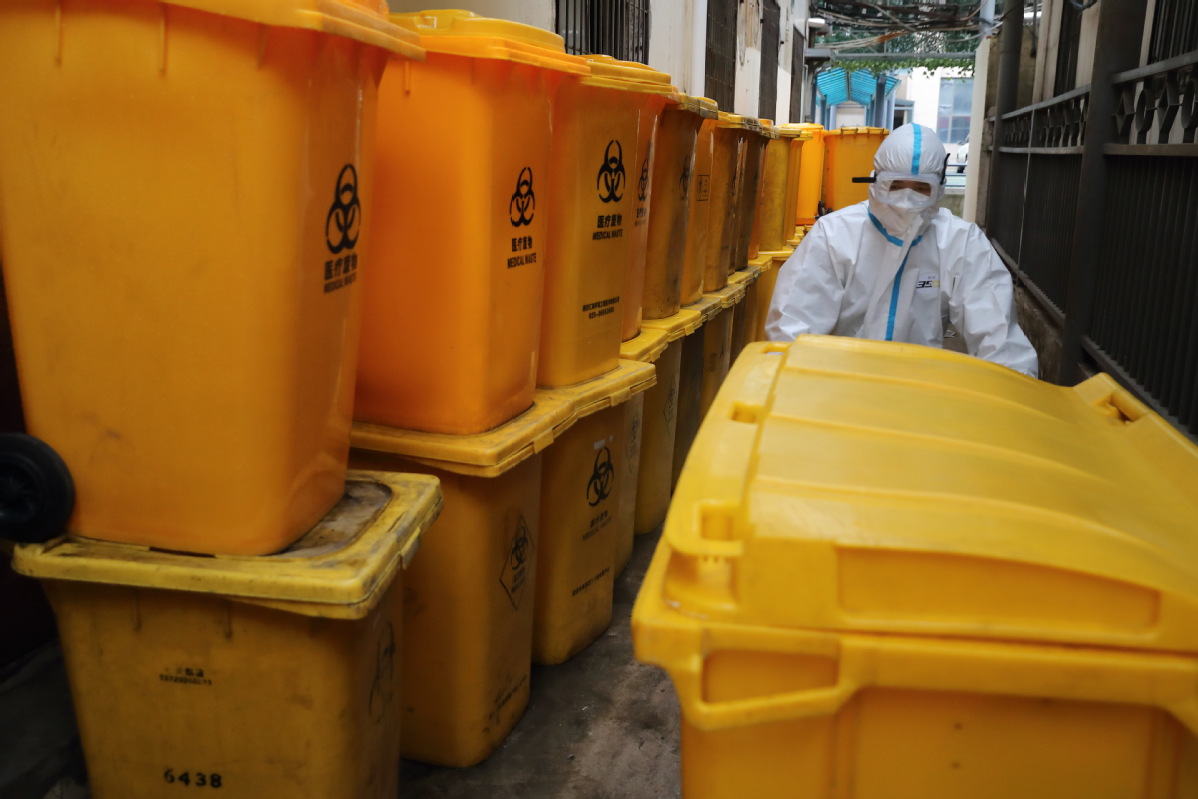Specialist Medical Waste Disposal Services: Ensuring Compliance and Safety
Wiki Article
Navigating Medical Waste Disposal: Vital Providers for Medical Care Facilities
Medical care facilities, whether tiny clinics or huge health centers, are left with the obligation of handling, dealing with, and disposing of a broad array of clinical waste streams. Understanding the vital solutions that support clinical waste disposal is not just a matter of compliance but additionally a fundamental element in safeguarding public health and ecological well-being.Regulatory Conformity Assistance
For medical care facilities, guaranteeing regulatory conformity support is important to keep proper handling and disposal of clinical waste. Following guidelines stated by organizations such as the Environmental Defense Agency (EPA) and the Occupational Safety and Wellness Management (OSHA) is important to stop ecological contamination, safeguard public wellness, and prevent possible lawful consequences. Regulatory compliance assistance supplies healthcare facilities with assistance on exactly how to appropriately set apart, shop, transportation, and get rid of numerous kinds of clinical waste based on local, state, and federal regulations. This assistance includes assistance in creating and executing extensive waste monitoring strategies, conducting regular team training sessions, and carrying out audits to ensure ongoing conformity. By partnering with regulatory conformity professionals, healthcare centers can remain up-to-date on evolving regulations, mitigate threats related to improper garbage disposal, and inevitably add to a much safer and much more sustainable environment for all.Waste Segregation Assistance

Healthcare facilities need to give clear guidelines and training to staff on exactly how to segregate waste properly. This includes separating general waste from dangerous products such as sharps, infectious waste, pharmaceuticals, and chemical waste. Color-coded bins, labels, and signage are frequently used to aid in waste segregation methods. Routine audits and surveillance of waste segregation processes are vital to recognize any kind of issues and make necessary improvements.
Collection and Transportation Providers

Correct collection and transport services are important components of the medical waste disposal procedure in medical care centers. These services guarantee that hazardous products are managed safely and in conformity with guidelines to safeguard both the setting and public wellness. Health care facilities count on specialized waste management firms to supply efficient collection and transportation services customized to their needs.
Clinical waste collection involves segregating various types of waste index at the point of generation, making use of color-coded bags or containers to distinguish between general, dangerous, pharmaceutical, and various other waste streams. Once collected, the waste is transferred in dedicated automobiles outfitted to deal with harmful materials securely.
Treatment and Disposal Solutions
In the realm of clinical garbage disposal for medical care centers, after the critical stage of collection and Go Here transportation solutions, the emphasis moves towards carrying out reliable therapy and disposal remedies. Therapy remedies usually entail processes such as autoclaving, which uses steam under stress to decontaminate the waste. This approach is generally utilized for contagious waste that should be rendered non-hazardous prior to disposal. An additional common treatment method is incineration, where waste is subjected to high temperatures in controlled settings to reduce its quantity and get rid of microorganisms.Disposal options encompass the final step in the clinical waste monitoring process. Recycling and resource recuperation are additionally gaining traction as lasting disposal choices for particular kinds of medical waste products.
Efficient treatment and disposal remedies are vital in ensuring compliance with policies and securing public wellness and the environment. Healthcare facilities should very carefully examine and select suitable techniques that line up with their waste administration goals and sustainability efforts.
Team Training and Education

To properly manage medical waste disposal in medical care centers, comprehensive team training and education and learning play a crucial function in making sure adherence to regulative demands and preserving a safe setting. Proper training gears up staff with the expertise and skills needed to take care of various kinds of medical waste, segregate them appropriately, and package them safely for disposal. By educating workers on the dangers connected with incorrect handling of clinical waste, great post to read facilities can reduce the chance of accidents, contamination, and regulatory infractions.

Conclusion
To conclude, medical care facilities depend on vital medical garbage disposal solutions to ensure regulatory compliance, proper waste segregation, safe collection and transport, efficient treatment and disposal, along with staff training and education and learning. These solutions play a vital role in preserving the health and safety and security of both healthcare workers and the public, highlighting the importance of proper monitoring of clinical waste in medical care setups.For health care facilities, guaranteeing regulative compliance support is important to maintain correct handling and disposal of clinical waste. Waste partition entails categorizing different kinds of clinical waste to make certain ideal handling, therapy, and disposal. This includes separating basic waste from harmful products such as sharps, contagious waste, pharmaceuticals, and chemical waste.Clinical waste collection includes segregating various kinds of waste at the point of generation, making use of color-coded containers or bags to identify between general, unsafe, pharmaceutical, and various other waste streams.In the realm of clinical waste disposal for healthcare centers, after the vital phase of collection and transportation solutions, the focus changes towards executing efficient treatment and disposal remedies.
Report this wiki page